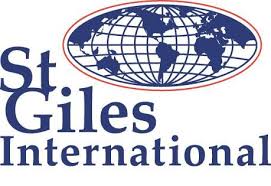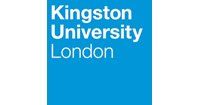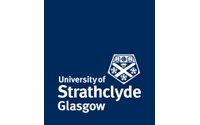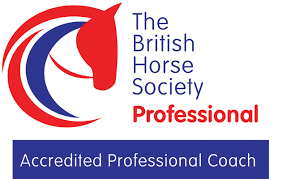
Conflict Management and Resolution
Course ID: 2511030101077ESH
Course Dates : 03/11/25 Course Duration : 5 Studying Day/s Course Location: London, UK
Language: Bilingual
Course Category: Professional and CPD Training Programs
Course Subcategories: Leadership and Management Excellence
Course Certified By: ESHub CPD & LondonUni - Executive Management Training
* Professional Training and CPD Programs
Leading to:
Executive Diploma Certificate
Leading to:
Executive Mini Masters Certificate
Leading to
Executive Masters Certificate
Certification Will Be Issued From :
From London, United Kingdom
Course Fees: £5,120.30
Vat Not Included in the price. VAT may vary depending on the country where the course or workshop is held.
Click to Pay
Date has passed please contact us Sales@e-s-hub.com
Course Information
Introduction
Conflict is an inevitable aspect of human interaction, particularly in professional environments where diverse perspectives, goals, and personalities converge. Whether it arises from miscommunication, competing priorities, or systemic issues, unresolved conflict can undermine productivity, erode trust, and create toxic work cultures. The ability to manage and resolve conflicts effectively is therefore a critical skill for individuals and organizations seeking sustainable success. This course delves into the principles and practices of conflict management, equipping participants with the tools to transform discord into opportunities for growth and collaboration.
Theories such as Thomas-Kilmann’s Conflict Mode Instrument and Fisher and Ury’s Getting to Yes provide foundational frameworks for understanding how conflict operates and how it can be addressed constructively. Despite these robust models, many professionals struggle to apply them in real-world scenarios due to gaps in training or experience. For instance, a 2021 survey by the Society for Human Resource Management (SHRM) revealed that 85% of employees experience workplace conflict at some level, yet only 40% feel adequately prepared to handle it. This course bridges that gap by offering practical strategies rooted in evidence-based approaches.
Professionals across industries face unique challenges when it comes to conflict resolution. In healthcare, disagreements between medical teams can delay patient care; in education, clashes over teaching philosophies may hinder student outcomes; and in corporate settings, unresolved disputes can stifle innovation. Consider the case of a global tech company that implemented conflict resolution workshops after noticing a decline in team cohesion. Within six months, employee satisfaction scores improved by 25%, and project completion rates increased significantly. Such examples underscore the transformative potential of mastering conflict management skills.
For individuals, proficiency in conflict resolution enhances emotional intelligence, leadership capabilities, and interpersonal relationships. Organizations benefit through reduced turnover, higher morale, and improved performance metrics. As workplaces become increasingly multicultural and remote work continues to rise, the demand for conflict resolution expertise grows exponentially. Leaders must navigate differences in communication styles, cultural norms, and technological barriers to foster cohesive teams.
This course goes beyond theory to emphasize actionable techniques and scenario-based learning. Participants will explore mediation strategies, negotiation tactics, and de-escalation methods tailored to various contexts. They will also examine psychological principles, such as cognitive biases and emotional triggers, that often exacerbate conflicts. Through role-playing exercises and group discussions, attendees will gain hands-on experience in addressing real-life challenges.
Ultimately, this program aims to empower participants to approach conflict not as a threat but as a catalyst for positive change. By fostering open dialogue, mutual respect, and collaborative problem-solving, individuals and organizations can build resilient systems capable of thriving amid adversity. Join us on this journey to develop the skills necessary to navigate even the most complex disputes with confidence and competence.
Objectives
By attending this course, participants will be able to:
Analyze the root causes of conflict using established theoretical frameworks.
Evaluate the impact of personal biases and emotions on conflict dynamics.
Design tailored intervention strategies to address specific types of conflict.
Implement effective communication techniques to facilitate constructive dialogue.
Apply negotiation and mediation skills to achieve win-win outcomes.
Develop policies and procedures that promote proactive conflict prevention within teams.
Assess the effectiveness of conflict resolution efforts through measurable indicators.
Who Should Attend?
Who Should Attend
This course is ideal for:
HR managers and business leaders responsible for fostering harmonious work environments.
Team leaders and supervisors seeking to enhance team cohesion and productivity.
Consultants and trainers specializing in organizational development and change management.
Educators and administrators aiming to improve classroom and institutional climates.
Healthcare professionals navigating interdepartmental challenges and patient relations.
Project managers coordinating cross-functional teams in high-stakes environments.
These groups will find immense value in the course as it addresses their specific needs, from resolving interpersonal disputes to implementing systemic solutions. While prior knowledge of conflict management is beneficial, the course is structured to accommodate both beginners and intermediate learners, ensuring accessibility without compromising depth.
Training Method
• Pre-assessment
• Live group instruction
• Use of real-world examples, case studies and exercises
• Interactive participation and discussion
• Power point presentation, LCD and flip chart
• Group activities and tests
• Each participant receives a 7” Tablet containing a copy of the presentation, slides and handouts
• Post-assessment
Program Support
This program is supported by:
* Interactive discussions
* Role-play
* Case studies and highlight the techniques available to the participants.
Daily Agenda
Daily Schedule (Monday to Friday)
- 09:00 AM – 10:30 AM Technical Session 1
- 10:30 AM – 12:00 PM Technical Session 2
- 12:00 PM – 01:00 PM Technical Session 3
- 01:00 PM – 02:00 PM Lunch Break (If Applicable)
- Participants are expected to engage in guided self-study, reading, or personal reflection on the day’s content. This contributes toward the CPD accreditation and deepens conceptual understanding.
- 02:00 PM – 04:00 PM Self-Study & Reflection
Please Note:
- All training sessions are conducted from Monday to Friday, following the standard working week observed in the United Kingdom and European Union. Saturday and Sunday are official weekends and are not counted as part of the course duration.
- Coffee and refreshments are available on a floating basis throughout the morning. Participants may help themselves at their convenience to ensure an uninterrupted learning experience Provided if applicable and subject to course delivery arrangements.
- Lunch Provided if applicable and subject to course delivery arrangements.
Course Outlines
Foundations of Conflict Management
Understanding the nature and sources of conflict.
Overview of prominent conflict resolution theories (e.g., Thomas-Kilmann, Fisher-Ury).
Identifying common misconceptions about conflict.
Exploring the role of emotional intelligence in conflict management.
Day 2:
Communication and Active Listening
Mastering non-verbal cues and body language.
Practicing active listening to de-escalate tensions.
Framing messages for clarity and empathy.
Addressing cultural differences in communication styles.
Day 3:
Negotiation and Mediation Techniques
Introduction to principled negotiation (Getting to Yes ).
Role-playing mediation scenarios in small groups.
Balancing assertiveness and cooperation during negotiations.
Crafting agreements that satisfy all parties involved.
Day 4:
Advanced Conflict Resolution Strategies
Managing power imbalances in conflict situations.
Dealing with aggressive or uncooperative individuals.
Leveraging technology for virtual conflict resolution.
Case studies: Lessons from successful conflict interventions.
Day 5:
Building Resilient Systems
Designing conflict-prevention policies for organizations.
Measuring the ROI of conflict resolution initiatives.
Facilitating post-conflict recovery and rebuilding trust.
Action planning: Applying course insights to real-world challenges.



















































